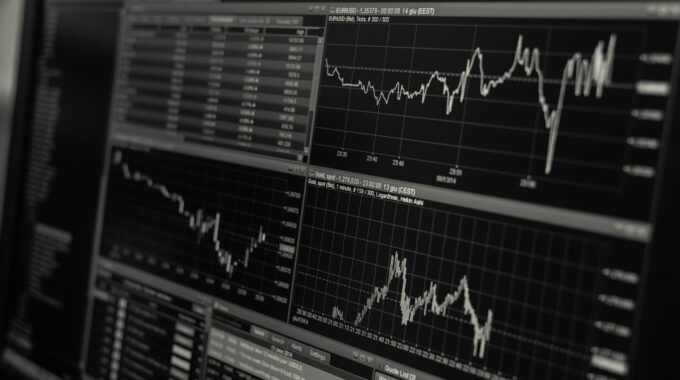Are you planning to invest in the London Stock Exchange (LSE)? But confused about…

The best approach to understanding ‘Derivatives’ (finance)
What Is an Exchange-Traded Derivative and how to trade them?
What Is an Exchange-Traded Derivative?
An exchange-traded derivative is a financial contract that is listed and traded on a regulated exchange. These instruments are characterized by their trading in a structured and controlled environment.
The popularity of exchange-traded derivatives has increased due to their distinct advantages over over-the-counter (OTC) derivatives. Key benefits include standardization, enhanced liquidity, and the mitigation of default risk.
Futures and options represent two of the most widely utilized forms of exchange-traded derivatives. These financial instruments serve dual purposes: to hedge against exposure and to facilitate speculation on a diverse array of financial assets, including commodities, equities, currencies, and interest rates.
Main highlights
An exchange-traded derivative represents a standardized financial contract that is executed on a regulated exchange. These instruments are settled through a clearinghouse, which provides a guarantee for each transaction. Prominent clearinghouses include the Options Clearing Corporation (OCC) and the Commodity Futures Trading Commission (CFTC).
Utilizing regulated clearinghouses to settle trades alleviates investment risk. Exchange-traded derivatives are listed on exchanges such as CBOE Global Markets and the New York Mercantile Exchange (NYMEX), and they are subject to oversight by the Securities and Exchange Commission (SEC).
Understanding Exchange-Traded Derivatives
Exchange-traded derivatives encompass options, futures, and various other financial contracts that are listed and traded on regulated exchanges, including but not limited to the Chicago Mercantile Exchange (CME), International Securities Exchange (ISE), Intercontinental Exchange (ICE), and the LIFFE exchange in London.
In contrast to their over-the-counter (OTC) equivalents, exchange-traded derivatives tend to be more appropriate for retail investors. The OTC market often presents considerable complexity, making it challenging to understand the instruments being traded and their precise characteristics.
In this context, exchange-traded derivatives provide two notable advantages:
Standardization
The exchange has established standardized terms and specifications for each derivative contract. This standardization facilitates investors’ understanding of essential information regarding their trades, including the contract’s value, the quantity of the underlying security or asset represented by the contract (e.g., lots), and the permissible number of contracts that can be bought or sold.
The U.S. Securities and Exchange Commission noted, “SEC Adopts Modernized Regulatory Framework for Derivatives Use by Registered Funds and Business Development Companies.”
Furthermore, individual contracts can be structured in sizes that are more accessible to small investors. For instance, an investor with limited capital may opt for mini options, which represent 10 shares of high-priced stocks, rather than standard options that represent 100 shares.
Elimination of Default Risk
The exchange functions as the counterparty for each transaction involving exchange-traded derivatives. This implies that it serves as the seller for every buyer and the buyer for every seller. Consequently, this structure mitigates the risk of default by the counterparty in the derivative transaction.
A notable characteristic of exchange-traded derivatives is the mark-to-market feature. This process entails that gains and losses on each derivative contract are assessed on a daily basis.
On any given trading day, should a client experience losses that diminish the initial margin to a specified threshold, it becomes necessary for them to provide the requisite additional capital in a timely manner. Failure to do so may result in the closure of their derivative position by the firm.
Financial futures represent derivatives that are based on various underlying assets, including treasuries, indexes, and currencies. They are frequently utilized by financial institutions as a hedge against long positions in the associated underlying securities.
What Information Does a Derivative Contract Include?
Generally, a contract will detail such things as the asset involved, the dollar value or amount (e.g., face amount or lot size) of the security, the settlement date and process, trading hours, price quotation, and the contract expiration date.
What Are Some Types of Derivatives Traded on an Exchange?
Some exchange-traded derivatives include stock options, currency futures, options and swaps, and index futures.
Why Are Exchange Traded Derivatives Appealing to Investors?
Investors, large and small, appreciate the fact that these investments are understandable, reliable, and liquid. Contract features are clear. Parties to a contract must abide by it. Default risk is eliminated. Exchanges are regulated. Trust in financial markets translates to liquidity, which in turn means efficient access and pricing.
Financial markets in UAE
The UAE’s financial markets deal primarily in equities, securities, bonds, mutual funds, commodities, currencies, metals and derivatives. For details, please click here.
Sources:



